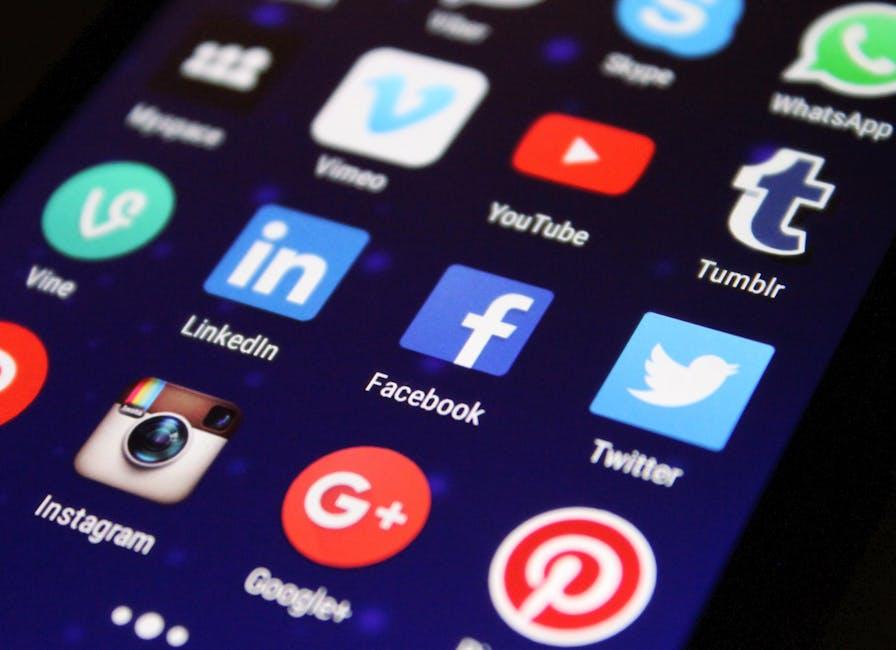



In the ever-evolving landscape of technology, the clash between titans seems to unfold in real time, each move reverberating through the digital sphere and influencing millions. Enter the latest chapter in the saga of social media giants: Mark Zuckerberg’s Meta platforms, including Facebook and Instagram, have recently ignited a fierce debate as they implement notable feature restrictions on iOS devices. This escalating battle isn’t just about control over user experience; it’s also a complex collision of corporate philosophies and market strategies. As Meta positions itself against Apple—a company renowned for its commitment to privacy and user-centered design—the ramifications of this showdown may alter how we socialize, connect, and interact in an increasingly digital world. In this article, we will explore the roots of this conflict, the implications for users, and what the future may hold as these two behemoths vie for dominance in our daily lives.
As tensions escalate between Meta and Apple, it’s essential to dig deeper into Zuckerberg’s motivations for implementing features that hinder iOS users’ experiences on Facebook and Instagram.This move appears to be a calculated effort by Meta to assert its dominance in the social media landscape and push back against what they perceive as Apple’s monopolistic grip over the app ecosystem. With Apple’s tightening privacy measures and stringent App Store regulations, Meta’s blockade could be seen as a plea for autonomy, resisting a framework that they believe undermines their revenue models and user engagement strategies.
Moreover, the blockade could serve as a broader signal to users and developers about the growing friction within the tech ecosystem, illuminating key points of contention between platform sovereignty and user choice. By leveraging features that are exclusive to Android or web platforms, Meta hopes to not only retain user interest but also fuel discussions around the fairness of Apple’s guidelines.The implications of this standoff affect not just tech giants but also everyday users who find their choices limited based on the device they own. Here are potential tactics Meta might consider:

The ongoing conflict between Meta and Apple has led to important changes in the user experience on iOS for platforms like Facebook and Instagram. As restrictions tighten, users are seeing a shift in how they interact with these social media giants. Key features that were once available may now be inaccessible, which can drastically alter how users engage with content. For instance, features that facilitate seamless sharing or content finding are experiencing limitations, leaving users frustrated.This change not only disrupts daily habits but also affects the way businesses utilize these platforms for marketing, creating a ripple effect throughout the digital ecosystem.
In practical terms, the impact of these restrictions manifests in several ways:
The implications extend beyond the simple loss of features; they shape the very fabric of social interaction and commerce on digital platforms. A user-focused table below illustrates the specific features affected and their implications for everyday users:
| Feature Affected | User Implication |
|---|---|
| Story Sharing | Reduced user engagement |
| Sponsored posts | Limited marketing reach |
| Direct Messaging | Compromised interaction |

The ongoing showdown between Meta and Apple transcends mere corporate rivalry, positioning them at the forefront of a pivotal paradigm shift in digital communication and user privacy. As Meta considers blocking key features of Facebook and Instagram on iOS devices, the fallout could reshape user engagement and influence the dynamic between hardware and software ecosystems.This escalation highlights essential tensions surrounding data ownership, where Apple’s commitment to user privacy stands in stark contrast to Meta’s reliance on data-driven advertising. Stakeholders now find themselves navigating a landscape where consumers must weigh the convenience of app features against their digital footprint.
In the broader context, the implications are profound, echoing through various industries as competitors reevaluate their strategies in response to a growing consumer consciousness regarding privacy.The emerging scenario prompts critical questions, such as:
To further illustrate the stakes, consider the following table summarizing key features affected by their clash:
| Feature | Meta’s Standpoint | Apple’s Approach |
|---|---|---|
| User Analytics | Essential for targeted advertising | Prioritizes user privacy, limits tracking |
| App Integration | Critical for cross-platform functionality | Emphasizes a seamless user experience |
| feature Accessibility | Potentially limited on iOS | Encourages native app progress |
As the duel between the tech giants intensifies, it’s essential for users to safeguard their digital experiences and remain informed about ongoing developments. Here are a few key strategies to consider:
Additionally, users should evaluate their device settings and apps regularly. Creating a personalized digital strategy can enhance your experience. Here’s a simple table to help view your options:
| Feature | Availability on iOS | Alternative Apps |
|---|---|---|
| Stories | Limited | Snapchat, TikTok |
| Reels | Available | YouTube Shorts |
| Direct Messaging | Restricted | Telegram, Signal |
As we navigate the shifting landscapes of technology and social media, the confrontation between zuckerberg’s Meta and Apple’s closely-guarded ecosystem emerges as a pivotal moment in digital history. With Facebook and Instagram implementing new feature limitations for iOS users, the implications of this battle extend far beyond mere app functionality. It signals a broader struggle for control, privacy, and user experience in an increasingly interconnected world.
As consumers, we find ourselves at a crossroads, faced with the consequences of corporate decisions that shape our digital interactions. Whether you’re a loyal user of Meta’s platforms, an avid Apple devotee, or simply an observer of this tech rivalry, one thing is clear: the stakes are high, and the ripple effects of this conflict will resonate throughout the industry for years to come.
In the unfolding saga of Zuckerberg versus Apple, it remains to be seen who will ultimately emerge victorious. Yet, as the battle continues, we are reminded of the power we hold as users, champions of choice in a digital realm defined by innovation and competition. Keeping a close watch on this ongoing dispute may not only enlighten our understanding of these tech giants but also empower us to make informed decisions about the platforms we engage with. What comes next? Only time will tell.